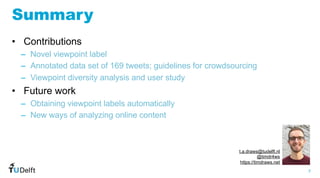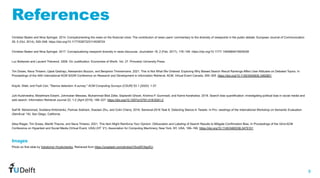1. The document presents a novel approach to representing viewpoints in debates using viewpoint labels and an ordinal stance scale from -3 to 3.
2. It describes a dataset of 169 tweets annotated with the new viewpoint labels on the topic of pineapple on pizza.
3. Future work discussed includes obtaining viewpoint labels automatically and new methods for analyzing viewpoint diversity in online content.
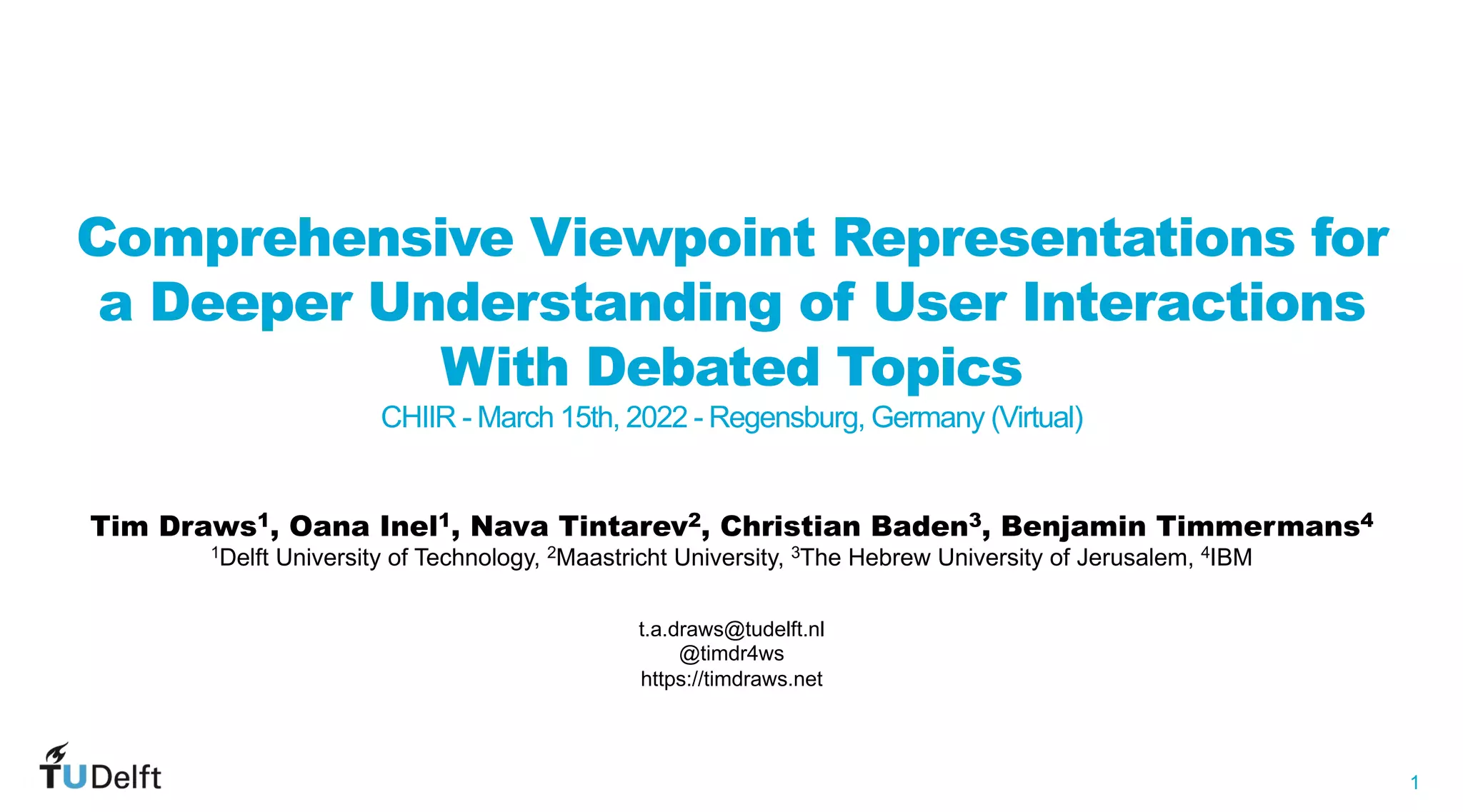
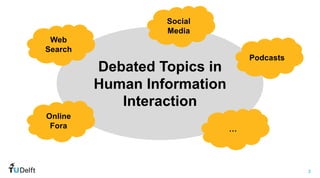
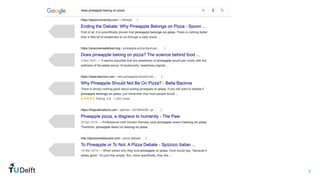
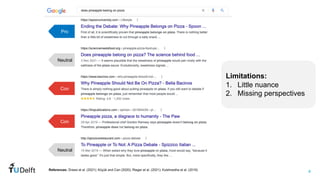
![5
WIS
Web
Information
Systems
Document
Stance
Ordinal [-3, 3]
Viewpoint Label
References: Draws et al. (2021); Rieger et al. (2021)
-3 3
2
1
0
-1
-2
Strongly opposing Strongly supporting
Neutral
“Pineapple on pizza is the
most scandalous thing. It
doesn’t taste good, but
also it’s just WRONG.”
-3](https://image.slidesharecdn.com/chiir2022timdraws-220624060600-6467e27a/85/Comprehensive-Viewpoint-Representations-for-a-Deeper-Understanding-of-User-Interactions-With-Debated-Topics-5-320.jpg)
![6
WIS
Web
Information
Systems
Document
Stance
Ordinal [-3, 3]
Viewpoint Label
References: Baden and Springer (2014; 2017); Boltanski and Thévenot (2006)
Logic
Multi-Categorical
“Pineapple on pizza is the
most scandalous thing. It
doesn’t taste good, but
also it’s just WRONG.”
-3
civic
functional
inspired](https://image.slidesharecdn.com/chiir2022timdraws-220624060600-6467e27a/85/Comprehensive-Viewpoint-Representations-for-a-Deeper-Understanding-of-User-Interactions-With-Debated-Topics-6-320.jpg)
